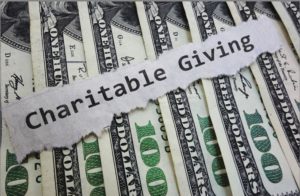I started my investment career in the ‘90’s by selling 5% tax free municipal bonds over the phone to retirees. People with money, I learned quickly, want reliable income and low risk. To be confident in the bonds I recommended, I sold mostly AAA or insured bonds – not the higher-yielding, but riskier, housing, hospital, or airport bonds.
But like Mary Hopkin’s classic 1960’s hit says,
“Those were the days, my friend, we thought they’d never end.”
Today, there is no place for bond investors to find AAA 5% yields. In fact, the yield on AAA tax free bonds is now 2.3%, the lowest in seventy-five years. All bond yields are the lowest since WWII. Just look at the Charles Schwab bond desk certificate of deposit, municipal and taxable bond yields in the table below:

The scarcity of yield has serious consequences for investors. Retirees relying on the classic 60/40 balanced portfolio cannot count on today’s bonds to pull their weight. For endowments, foundations, and insurance companies with a mandate to own bonds, low yields will make it nearly impossible to meet their annual payout requirements.
10-Year Outlook for Bonds
Unfortunately, the problem of low yields appears to be here to stay. Vanguard’s 10-year annualized bond outlook for taxable bonds is well below 2.0%, which means bond returns may not even keep up with average 2% inflation.
10-Yr Outlook Bond Type
0.30% – 1.3% US Treasury bonds
0.70% – 1.7% US Aggregate bonds
The New Alternative to Bonds
Education loans to young professionals with good credit are an emerging asset class for individual investors. Previously, loans to new doctors, lawyers, and MBA’s were provided mainly by traditional brick-and-mortar banks. During the last decade, a few online lending start-ups began offering investors ‘marketplace,’ or ‘peer-to-peer’ loans. However, peer-to-peer lenders catered to lower-rated and sub-prime borrowers, often charging near-usurious interest rates.
Investing in high-quality student loans can be a better investment alternative. That is why I have launched Impact Capital Funds, Inc. Through its funds, accredited investors can earn a bond-like target yield of 4%, and like an intermediate-term bond, the fund will have a 7-year maturity or term. Beginning in January 2021 Impact Capital Funds will open its first investment fund that will invest primarily in the loans of Notre Dame alumni. During the last decade, Notre Dame graduates have repaid their Federal undergraduate student loans in full and on time 99.4% of the time, ranking their loan default rate 9th-best in the U.S.
Investing for More
Impact Capital Funds is a pioneer in impact investing for student loans. With student loan impact investing, investors earn a financial return while simultaneously achieving social impact in two ways: alleviating high interest debt costs and generating tuition scholarships. As a company, the firm is Investing for More:
✓ more affordable student loans,
✓ more access to scholarships,
✓ more return than just investors’ profit
For more information, download the infographic, Investing in Student Loans.
Craig Price is an Independent Advisor Representative affiliated with Naples Wealth Planning. Price Wealth Management and Naples Wealth Planning client assets are custodied with Charles Schwab & Company Inc. Impact Capital Funds manages funds issuing securities under Rule 506c of Regulation D under the Securities Act of 1933. Investments are currently only available to Accredited Investors. Consequently, we are required to verify that all our investors are accredited according to the SEC definition described here. © 2020 Impact Capital Funds, Inc. All Rights Reserved.



